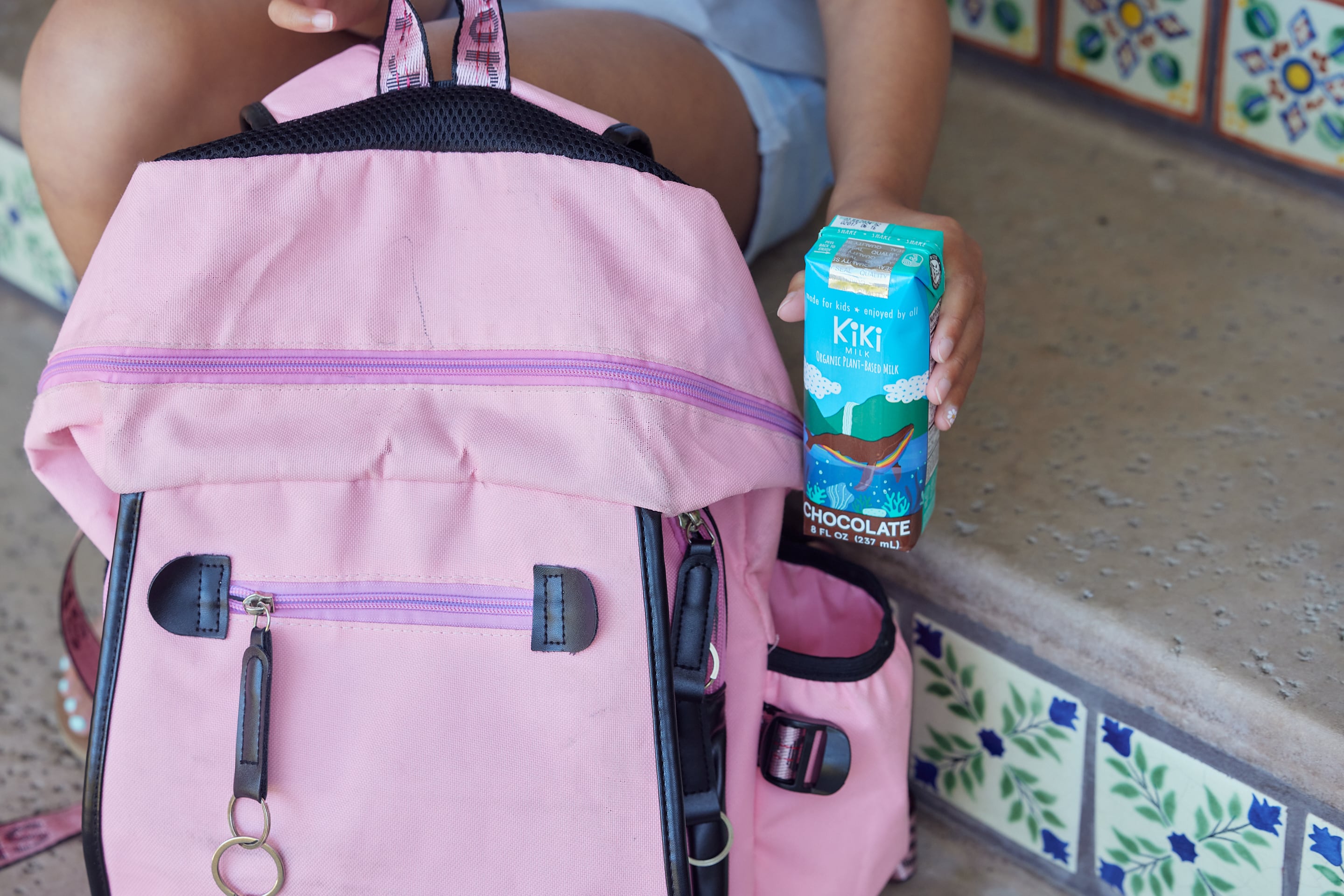Selling a plant-based product is not enough to win capital, according to PlantBaby founders, Alex and Lauren Abelin, but rather brands should move away from filler ingredients and prioritize clean, whole ingredients that can attract both dairy and non-dairy consumers.
Plant-based beverage company PlantBaby recently closed its seed equity financing round reaching a $20 million valuation. The series was led by private equity firm B2 Partners, which focuses on established and profitable businesses. Additionally, Big Idea Ventures, Everywhere Ventures, X Factor Ventures, Women’s Equity Lab Silicon Valley and Babylist provided capital.
PlantBaby’s “commitment to creating clean, plant-based nutrition solutions aligns perfectly with our belief in backing businesses that prioritize both health and sustainability,” said Matt Behrens, founder, B2 Partners.
The additional funding will go towards expanding access to PlantBaby’s products across the country in retailers like Sprouts and Wegmans and digital markets like Amazon, Thrive and PlantBaby’s Kiki Milk website via Shopify. PlantBaby will also use the new capital to invest in research and development for plant-based milk and new categories, according to the company.
Securing capital amidst category headwinds
The company’s funding comes at a time where plant-based milk sales are declining – yet shelf-stable offerings show some promise.
While PlantBaby offers plant-based milks for children, the Abelins said they consider the company as a “health-forward nutrition company” by prioritizing ingredient quality, which attributed to its funding.
The founders said in an email that “just because a company is plant-based doesn’t mean it’s necessarily healthy or worthy of funding.”
Rather, they said, investors and consumers should ask, “What are their values and standards? Do their products have integrity? We believe if there’s a decline in plant-based sales, it may be because people are struggling to buy groceries across the board and/or because they are navigating health challenges by trying other diets (carnivore, keto, etc).”
As consumers continue to read ingredient labels with increased discernment, “packaged plant-based foods often contain unnecessary ingredients that people are trying to stay away from,” including seed oils, gums and natural and artificial flavors, they added.
PlantBaby’s first product, Kiki Milk, a USDA Organic blended plant-based milk was launched in 2020 and contains six whole food ingredients like oats, sprouted pumpkin seeds, hemp seeds and Aquamin (a patented marine magnesium and seaweed calcium complex). It is free from seed oils, gums, artificial flavors and preservatives. Each serving provides 5 grams of protein and between 228-270 milligrams of calcium (from Aquamin) per serving depending on flavor (Original, Unsweetened, Chocolate and Mac Nut). The company is exploring a grain-free milk option and increasing its size offerings to accommodate to more households, according to the founders.
The founders credit PlantBaby’s clean label focus, direct-to-consumer success and subscription model for setting it apart in the dairy-free kids’ space – a key factor in securing investor support.
‘It’s not about plant-based vs non-plant-based anymore’
Amid declining category sales, PlantBaby still sees the brand ripe for growth and being an attractive option for dairy consumers as it positions itself as a “clean-label, whole-food product” that undergoes third-party testing for glyphosate-residue and screening for heavy metals, molds and pesticides.
The founders emphasize that for the plant-based category to change and grow, “brands need to move away from filler ingredients like seed oils, natural flavors and gums.”
They continued: “It is not about plant-based versus non-plant-based anymore. It is about real food. Some people can digest dairy, others can’t. Whether it’s Kiki Milk or a glass of cow’s milk, people want it to be high quality and organic, packed with nutrition and screened for glyphosate. It’s a paradigm shift that we hope people begin to grasp.”
The founders attribute the capital struggle plant-based brands face to “poor nutritional value, low-quality ingredients and mediocre taste. Simply being plant-based isn’t enough – brands must stand out by offering superior taste, health benefits and overall value.”
They added, “Regardless of being plant-based or not, early-stage consumer and enterprise companies have struggled to secure capital post-2023. The investor climate has shifted, with a stronger emphasis on profitability over growth. Competition for investor dollars is fierce, and only the absolute best and brightest are getting funded.”



